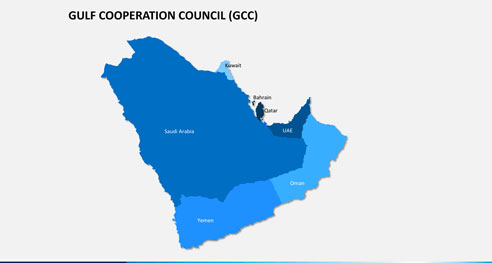The healthcare market in the Gulf Cooperation Countries (GCC) region is undergoing a revolution. A combination of age, affluence, lifestyle and dietary choices has led populations in this region to a higher prevalence of diabetes, cardiovascular disease, obesity, and other conditions. GCC governments have responded by rapidly increasing their healthcare funding or insurance model and working with corporations to improve private health.
By 2020, Bahrain, Kuwait, Oman, Qatar, Saudi Arabia and the UAE are set for significant growth in the healthcare market, presenting a range of challenges and opportunities for those in the region and those working with GCC countries.
GCC Healthcare Market Overview
Countries in the GCC region are increasingly facing the health problems of the western world, namely long-standing access issues or curative behaviours over preventative community methods. To solve these worldwide problems, GCC countries are implementing long-term strategic plans to upgrade their healthcare to the best possible standard.
Billions of dollars are being injected into building and nurturing healthcare facilities by both governments and the private sector. In the five year period to 2020, here are some of the changes we can expect to see:
- An extra US$ 31 billion invested in GCC healthcare markets, representing more than a 12 per cent compound annual growth rate (CAGR)
- A overall growth of approximately 76 per cent in both inpatient and outpatient markets
- An increased use of healthcare technology, such as clinical coding for vital health demographic data
- A transition to the complete digitisation of patient records and e-visits
- Further development of mandatory insurance schemes.
- An increased demand for hospital beds, growing at 2.3 per cent CAGR between 2015 and 2020
A Look at the Current State of Each of the GCC Countries
Bahrain
- A small overall population, but the highest spend on healthcare as a percentage of GDP in the GCC
- Healthcare spending is largely government led, with 16 public hospitals and 7 private hospitals
- In 2013, there were 32 physicians for every 10,000 people in the country and many of the physicians are expatriates
Kuwait
- Nearly 4/5ths of adults over the age of 20 are overweight or obese, contributing to a demand for healthcare and lifestyle changes
- Kuwait’s healthcare spending increased by more than 82 per cent between 2008 and 2015 (annual growth of 12.4%) and this was mainly government led
- In 2013, there were 21 hospital beds for every 10,000 people in the country
Oman
- Oman’s healthcare expenditure sat at a massive 10 per cent annually between 2008 and 2013 but was the lowest per capita in the GCC in 2013
- The country is focusing on preventative care, service delivery and the decentralisation of services
- Oman has enjoyed a significant increase in the number and quality of medical professionals in the last 10 years, but this number is still inadequate for their population and healthcare needs.
Qatar
- Qatar is both the wealthiest nation in the GCC and the world, recording the highest per capita healthcare spending in the region
- However, their healthcare spending is the lowest in the GCC when compared to their overall GDP
- One of Qatar’s aims is to improve the recruitment and retention of healthcare professionals
Saudi Arabia
- As the most populous nation in the GCC, Saudi Arabia also faces a significant shortage of hospital beds
- Saudi Arabia’s healthcare workforce is largely dependent on expatriates
- Overall healthcare expenditure increased by more than 60 per cent in the five years to 2013
- Saudi Arabia is embarking on a healthcare journey to improve patient data and healthcare education in-line with the 2030 vision of the Kingdom
UAE
- The United Arab Emirates is aggressively expanding its healthcare industry to meet international standards, with innovation welcomed
- Unlike most GCC countries, more than 2/3rds of the country’s hospitals were run by the private sector in 2014
- Dubai is one of the top locations for medical tourism and cosmetic surgeries
Some of the Challenges Faced by GCC Countries
In their goal to expand their healthcare sector and meet changing needs, GCC countries are tackling the vital issue of health head-on.
GCC countries have a lack of local human healthcare resources and a transient expatriate population, which doesn’t always provide the continuity required for long-term health planning. However, huge plans have already started with regards to national insurance programmes, removing the reliance on expensive hospital care, more education around preventative lifestyle choices and innovative outsourcing for payment or data, such as clinical coding and medical billing.
Synapse Medical Services is delighted to be assisting in this region to develop its international portfolio. Our connections in the UAE and Saudi Arabia are growing by the month and we look forward to continuing to represent Australian quality and Indian innovation in these countries via our joined up offices.
All health systems are products of their social, cultural, political and economic circumstances, however health is a worldwide need that contains shared aims.
We are delighted to be part of the worldwide health story.
Synapse medical has an office in Dubai and a strategic partner in the Kingdom of Saudi Arabia. If you would like to know more about our involvement in the GCC or about healthcare in that region please do get in touch. We would be delighted to share our experiences with you. Contact us today

